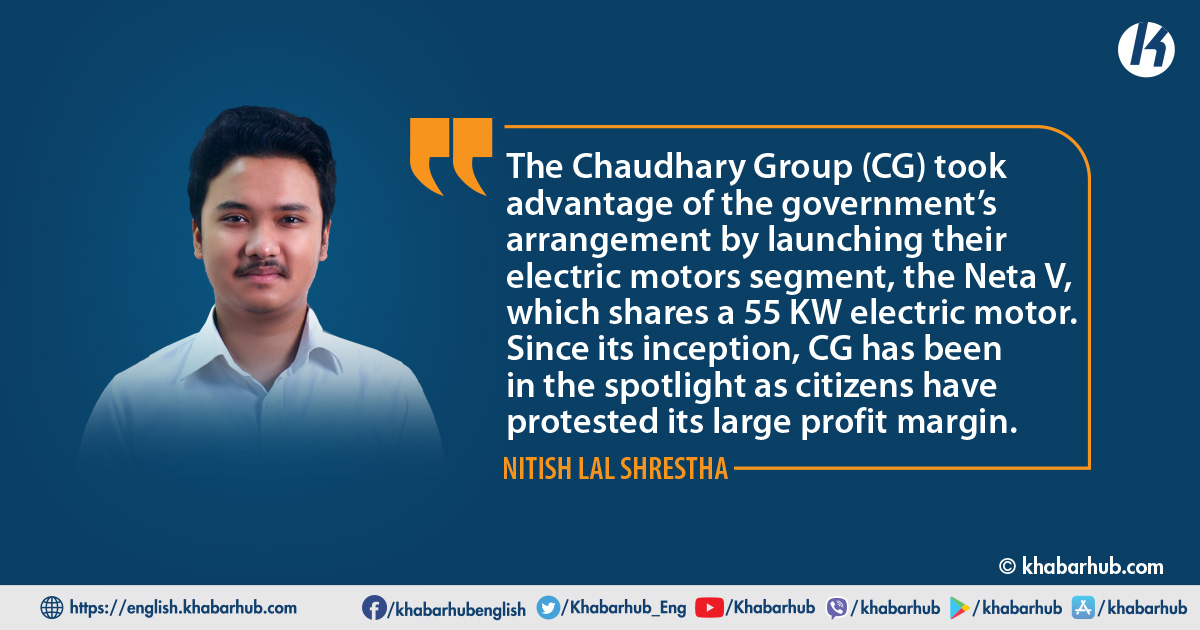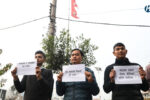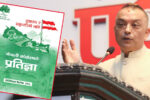KATHMANDU: Nepal’s five-party coalition government presented its budget for the Fiscal Year 2022/23 a couple of weeks ago.
Although some refer to it as a populist budget aimed at the upcoming elections, critics think it is unfair because some groups profit while others feel treated unfairly.
Let’s explore some of the areas where the budget has gone wrong and been unjust to the people in this context.
Contradictory arrangement for Sanitary Pad
The government budget 2022/23, has announced to exempt sanitary pads from paying 90 percent customs duty. Sanitary Pad manufacturers have widely criticized the government’s decision to exempt sanitary pads from paying 90 percent customs duty.
In its annual budget for the fiscal year 2022/23, the government announced a 90 percent customs tax exemption on the import of sanitary pads.
The government currently charges a 15% customs duty on all sanitary pad imports, which will be reduced to 1.5 percent after the next fiscal year begins.
Another reason for the high pricing is that the company is supplying a free 60W charger, which costs roughly NPR 1 lakh, as well as a year’s worth of insurance. All of this will set you back a little more than NPR 150,000.
Although the exemption would make this easier for women of all backgrounds in the nation to acquire sanitary pads, the domestic business will be handicapped by this unfair arrangement.
Because local manufacturers would be unable to compete with foreign products, the government’s decision could lead to the collapse of Nepal’s sanitary pad industry.
As the budget states ‘to support domestic producers’, the government announced in the yearly budget that only a 1% tax will be paid on the import of raw materials needed to manufacture pads.
However, it should be highlighted that the announcement of a 1% reduction in customs duty on raw materials is insufficient because the 54 raw and packaging materials required to manufacture pads have not been reduced.
In light of this, we might conclude that the new budget has been unfair to the local sanitary pad manufacturers.
In Nepal, there are 35 to 40 small and large-scale sanitary pad industries. With a Rs 6 billion investment, around 900 million sanitary pads will be produced.
The government’s choice favors foreign manufacturers unfairly. The government’s decision to charge only 1.5 percent customs duty on imported pads has pushed indigenous industries to the brink of closure.
According to the Nepal Sanitary Pad Manufacturers Association, 6,000 jobs are at risk and simultaneously the existing industries might face bankruptcy.
CG exceeding 20% profit margin
The government has agreed to levy a 30% excise fee on automobiles with motors rated between 100 and 200 kW in the 2022/23 budget.
Electric vehicles with motors rated at 201-300 kW will be subject to a 45 percent excise levy imposed by the government. Excise duty on electric vehicles with a motor capacity of more than 300 kW has remained at 60%.
The Chaudhary Group (CG) took advantage of the government’s arrangement by launching their electric motors segment, the Neta V, which shares a 55 KW electric motor. Since its inception, CG has been in the spotlight as citizens have protested its large profit margin.
On Wednesday, CG Motors, a subsidiary of Chaudhary Group, debuted its first electric crossover vehicle, the Neta V, on the Nepali market (June 8).
The Revolutionary Neta V is priced at Rs 38 lakhs, according to the company. Surprised by the pricing, Nepali citizens began studying the automobile and discovered the significant price difference in the Chinese market.
The Neta V EV costs just Rs. 15 lakhs in the Chinese market. This post began to circulate around the media, accusing CG Motors of defrauding customers.
Nepal has a few electric vehicles on the market, but this is the first time that one of them has caused controversy. The following calculation and facts show how the controversy arose.
NETA V EV Market Price Calculation
Price in China: NPR 15,00,000 (in current dollar exchange rate)
Custom Duty: 30% of 15,00,000 = NPR 4,50,000
Transportation Cost (each vehicle) = NPR 80,000
Total Cost Price for the Company before Profit = Price in China + Custom Duty + Transportation cost =
NPR 20,30,000
Maximum Profit for Distributor (20%) = 20% of 20,30,000 = NPR 4,06,000
Market Selling Price = NPR 20,30,000 + NPR 4,06,000 = NPR 24,36,000
According to this calculation, the actual market price of the NETA V EV should have been Rs. 24 lakhs, while the vehicle’s price tag is Rs. 38 lakhs, indicating a Rs. 15 lakhs difference.
Let us do the same calculation with Hyundai Kona EV, which is in the Nepali market.
Hyundai Kona Price Calculation
Price in India: INR 23,79,000 = NPR. 38,06,400
Custom Duty: 30% of 38,06,400 = NPR 11,41,920
Transportation Cost (each vehicle) = NPR 80,000
Total Cost Price for the Company before Profit = Price in India+ Custom Duty + Transportation cost = NPR 50,28,320
Maximum Profit for Distributor (20%) = 20% of 50,28,320 = NPR 10,05,664
Market Selling Price = NPR 50,28,320 + NPR 10,05,664 = NPR 60,33,984
It is clear how unethically the Neta Ev has been charged since the calculated preliminary price of Kona and the selling price of it in Nepal are almost identical.
Following much criticism, the Chaudhary Group issued a statement explaining why the pricing is so expensive.
According to CG, the Chinese government granted a subsidy of up to $6000, which the Nepali market was unable to obtain, resulting in a price increase.
Recently, Finance Minister Janardan Sharma has come under criticism for allegedly letting an unauthorized person into the Ministry of Finance the night before the release of the budget. Are these budget injustices a result of the recent event? An explanation of the question is definitely necessary.
This rationale, however, does not appear to be reliable, given Alibaba express, a Chinese-based worldwide e-commerce platform, is selling the same model with all of the government incentives.
Similarly, CG argues that changing a left-hand-drive car to a right-hand-drive car will cost a lot of money. This justification is as foolish as it appears. When you order a large number of vehicles, the manufacturer will customize them for free. While ordering thousands of vehicles, changing the steering control should not be a costly task.
Another reason for the high pricing is that the company is supplying a free 60W charger, which costs roughly NPR 1 lakh, as well as a year’s worth of insurance. All of this will set you back a little more than NPR 150,000.
Despite the fact that the dispute has been going on for more than a week, the government has done nothing to address it. The government appears to be in cahoots with CG Motors, which is not in the best interests of the general public.
Nevertheless, Nepalese citizens are not easily fooled, and if the pricing is not changed soon, the Neta V EV could be a failure before it rises.
Recently, Finance Minister Janardan Sharma has come under criticism for allegedly letting an unauthorized person into the Ministry of Finance the night before the release of the budget. Are these budget injustices a result of the recent event? An explanation of the question is definitely necessary.









Comment